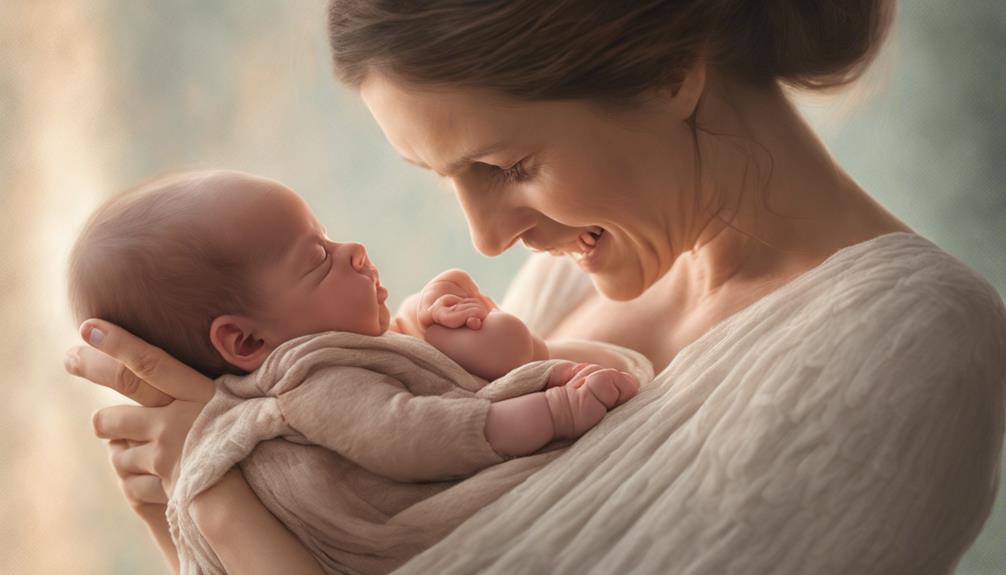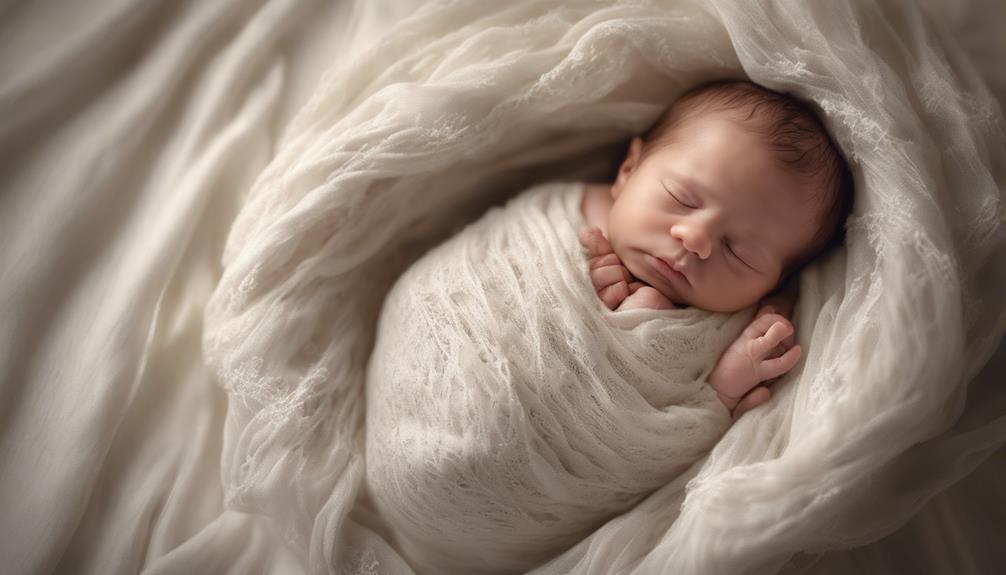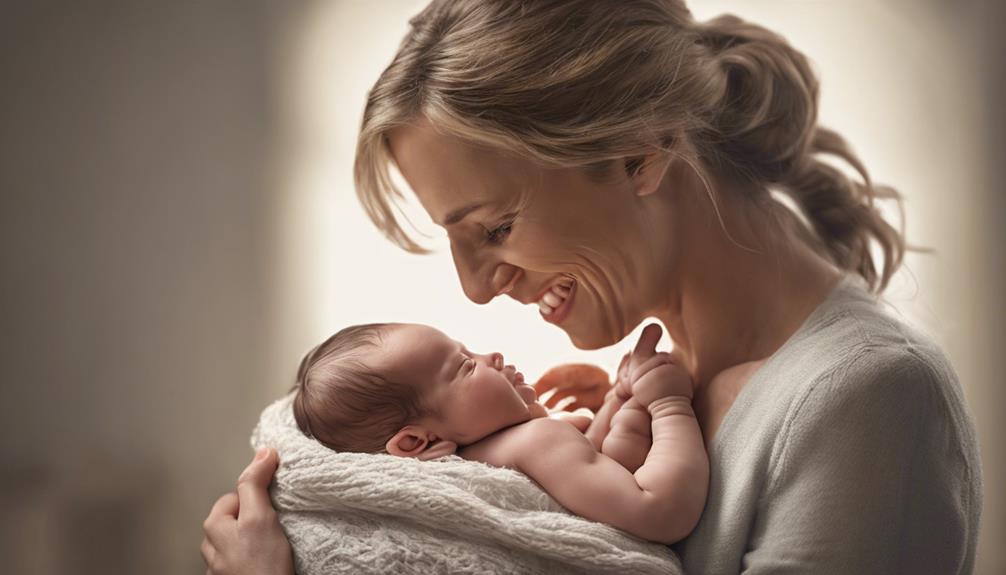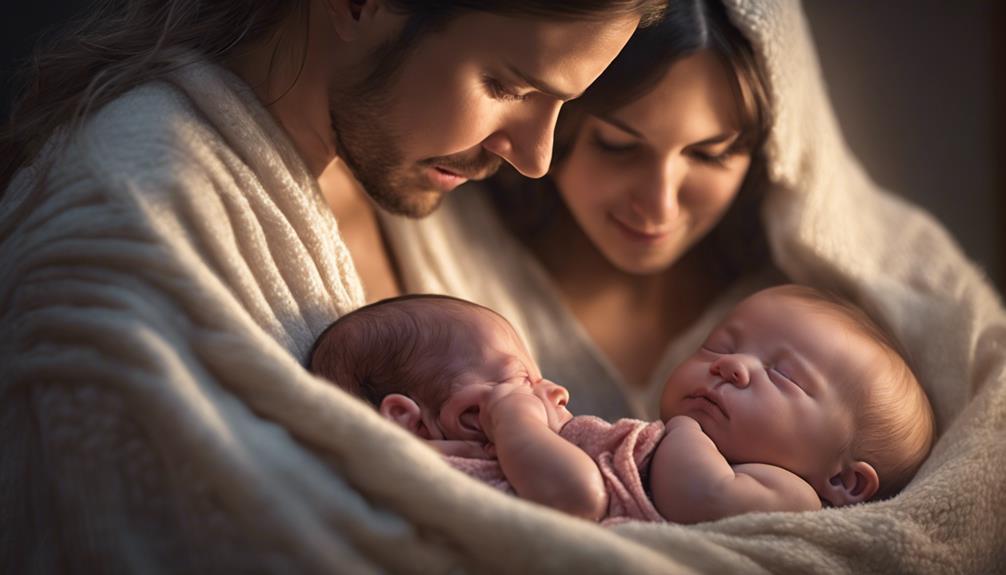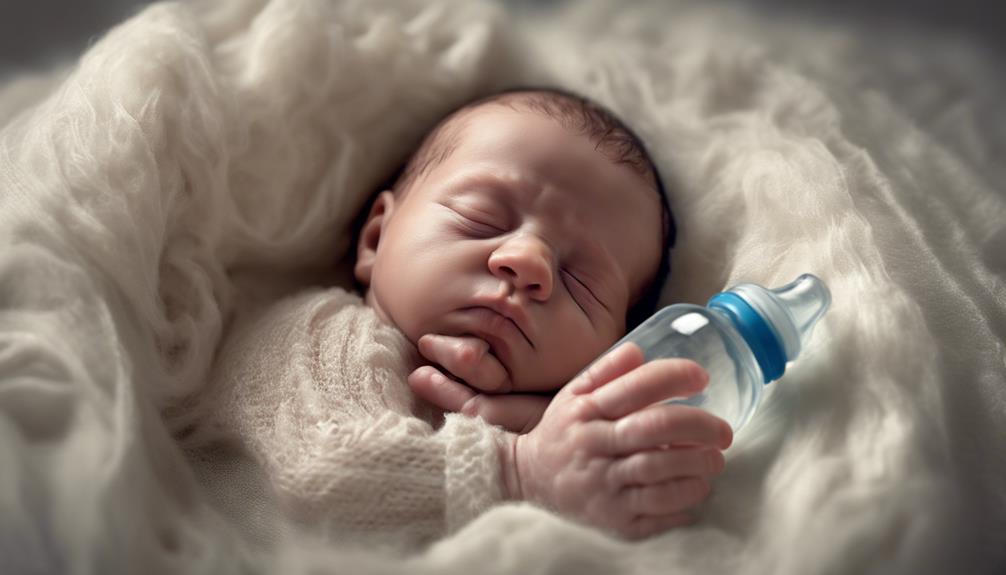When your newborn starts hiccupping, it can feel like a tiny drumbeat echoing in your ears, a rhythm that leaves you wondering how to make it stop.
But fret not, as there are simple tricks to help ease those adorable hiccups that can make your little one uncomfortable.
Stay tuned to discover the gentle techniques that might just be the solution you've been searching for.
Key Takeaways
- Burp the baby during and after feedings to release trapped air.
- Use a pacifier to relax the diaphragm and alleviate hiccups.
- Hold the baby upright after feeding to aid digestion.
- Avoid overfeeding and employ proper feeding techniques to prevent hiccups.
Causes of Newborn Hiccups
Newborn hiccups often occur due to factors such as swallowing air during feeding or experiencing sudden temperature changes. These tiny hiccups can also be triggered by overfeeding, stress, or excitement in your little one. Understanding that your newborn's hiccups are mostly harmless and are closely linked to their immature digestive system and the development of their respiratory muscles is vital. In fact, these hiccups might even play a role in your baby's brain development.
To help prevent and manage these hiccups, paying attention to your feeding practices, burping techniques, and the environmental factors around your baby is important. By being mindful of how your baby feeds and ensuring proper burping after meals, you can reduce the occurrence of hiccups. Additionally, creating a calm and comfortable environment for your newborn can also contribute to minimizing these adorable yet sometimes bothersome hiccups.
Immediate Relief Techniques
When your baby is experiencing hiccups, there are simple techniques you can try to provide immediate relief. Here are some effective methods to help your baby find comfort:
| Technique | Description |
|---|---|
| Burping | Gently burp your baby during and after feedings to release trapped air and ease hiccups. |
| Pacifier | Offer a pacifier for your baby to suck on; this can relax the diaphragm and relieve hiccups. |
| Rocking | Gently rock your baby or pat their back to calm the diaphragm and reduce hiccups. |
| Changing Position | Try holding your baby upright or changing their position to aid in stopping the hiccups. |
These techniques can help your baby relax and alleviate the discomfort caused by hiccups. Remember to avoid using adult remedies like holding breath, as they are not suitable for newborns. By employing these simple methods, you can provide immediate relief for your little one's hiccups.
Effective Positioning Methods
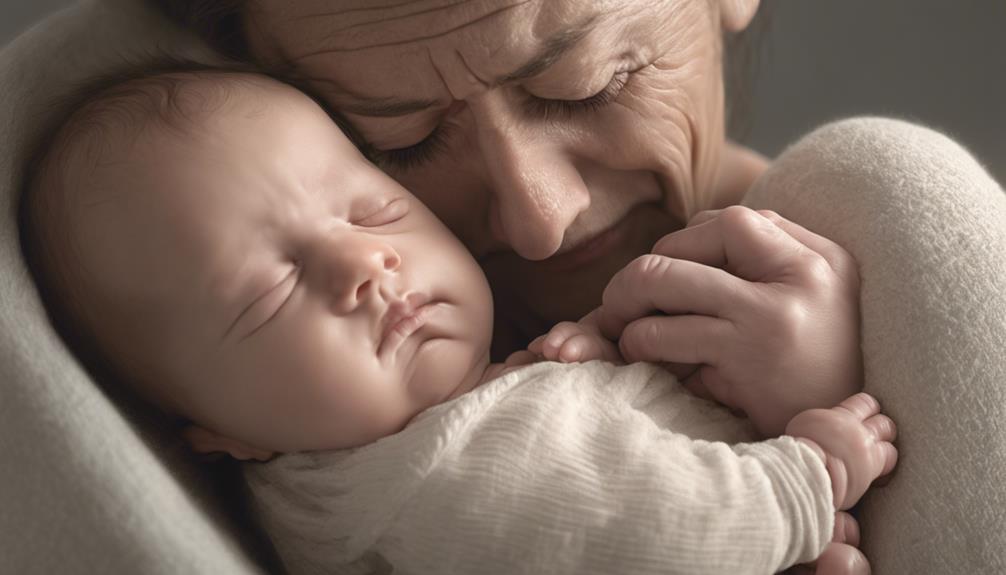
To help your baby find relief from hiccups, consider implementing effective positioning methods that can aid in alleviating discomfort and preventing hiccups. Holding your baby in an upright position after feeding is key; it helps aid digestion and reduces pressure on the diaphragm, potentially decreasing hiccups.
Placing your baby in a gentle, upright position against your chest or shoulder can provide comfort and may help stop hiccups in their tracks. Utilizing a baby carrier or infant seat to keep your little one in an upright position can also prevent hiccups by minimizing pressure on the stomach and diaphragm.
Elevating the head of your baby's crib slightly is another effective method; it promotes better digestion and reduces the chances of hiccups during sleep. Keeping your baby in a semi-upright position during and after feeding not only facilitates burping but also decreases the likelihood of hiccups occurring.
Preventative Measures for Hiccups

Implementing simple preventative measures can help minimize the occurrence of hiccups in your baby. To prevent hiccups in babies, remember to burp your baby during and after feeding to release trapped air in the stomach. Offering a pacifier can help relax the diaphragm and potentially stop hiccups. Make sure proper feeding techniques, like using the correct bottle nipple size or maintaining a good latch during breastfeeding, to prevent hiccups. Keeping your baby upright after feeding aids in digestion and reduces the likelihood of hiccups. Additionally, avoid overfeeding your baby, as it can cause stomach discomfort and increase the chances of hiccups.
| Preventative Measures | Description |
|---|---|
| Burp your baby | Release trapped air by burping during and after feeding. |
| Offer a pacifier | Help relax the diaphragm and potentially stop hiccups. |
| Proper feeding techniques | Use the right bottle nipple size or maintain a good latch to prevent hiccups. |
| Keep baby upright | Aid digestion and reduce hiccups by keeping your baby upright after feeding. |
| Avoid overfeeding | Prevent stomach discomfort and hiccups by not overfeeding your baby. |
When to Seek Medical Advice

If your newborn's hiccups persist for several hours without relief, it's important to seek prompt medical advice. While hiccups are common in babies and often subside on their own, if your baby appears distressed or in pain during hiccups, it's essential to consult a healthcare provider. Additionally, if the hiccups are causing feeding difficulties or disrupting your baby's sleep patterns, seeking medical advice is recommended.
Persistent hiccups in newborns could be a sign of an underlying issue that requires evaluation by a healthcare professional. It's vital to monitor your baby's well-being during hiccups and seek professional advice if you're concerned about their health.
Frequently Asked Questions
How Do You Get Rid of Hiccups for Newborns Fast?
To get rid of hiccups for newborns fast, try burping during and after feedings, offer a pacifier to relax the diaphragm, and let hiccups resolve naturally within 5 to 10 minutes. Avoid gripe water and create a calm feeding environment.
Is It OK to Lay My Newborn Down With Hiccups?
It's perfectly fine to lay your newborn down with hiccups. Hiccups are a normal part of baby life and won't harm them. Most newborns can still sleep peacefully with hiccups, which usually go away on their own.
How Do You Get Rid of Hiccups in a Newborn Position?
To get rid of hiccups in a newborn, try holding them upright, patting gently while on their tummy, keeping them calm, and rocking them softly. Avoid sudden movements. These methods can help ease hiccups effectively.
What Stops Hiccups Quickly?
To stop hiccups quickly, try burping your baby, offering a pacifier, changing their position, or gently rubbing their back. Avoid adult remedies and focus on simple, gentle techniques to effectively calm newborn hiccups.
Conclusion
To sum up, understanding the causes of newborn hiccups is the first step. Using immediate relief techniques, such as burping or giving small sips of water, can help alleviate the hiccups. Additionally, practicing effective positioning methods, like holding the baby upright after feeding, can prevent hiccups from occurring. Implementing preventative measures, such as feeding slowly and keeping the baby in an upright position during and after feeding, can also help manage your baby's hiccups.
Remember, seeking medical advice when necessary is always important. By following these steps, you can help your little one find relief and comfort from those pesky hiccups. Stay informed, stay proactive, and most importantly, stay calm.
